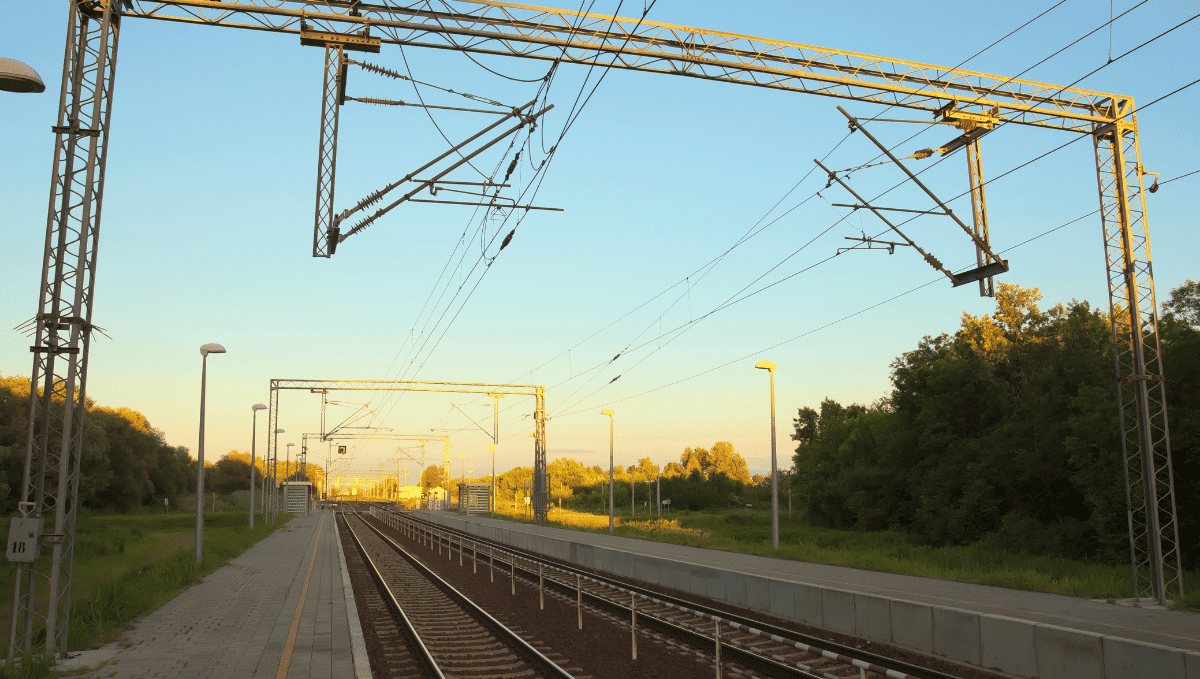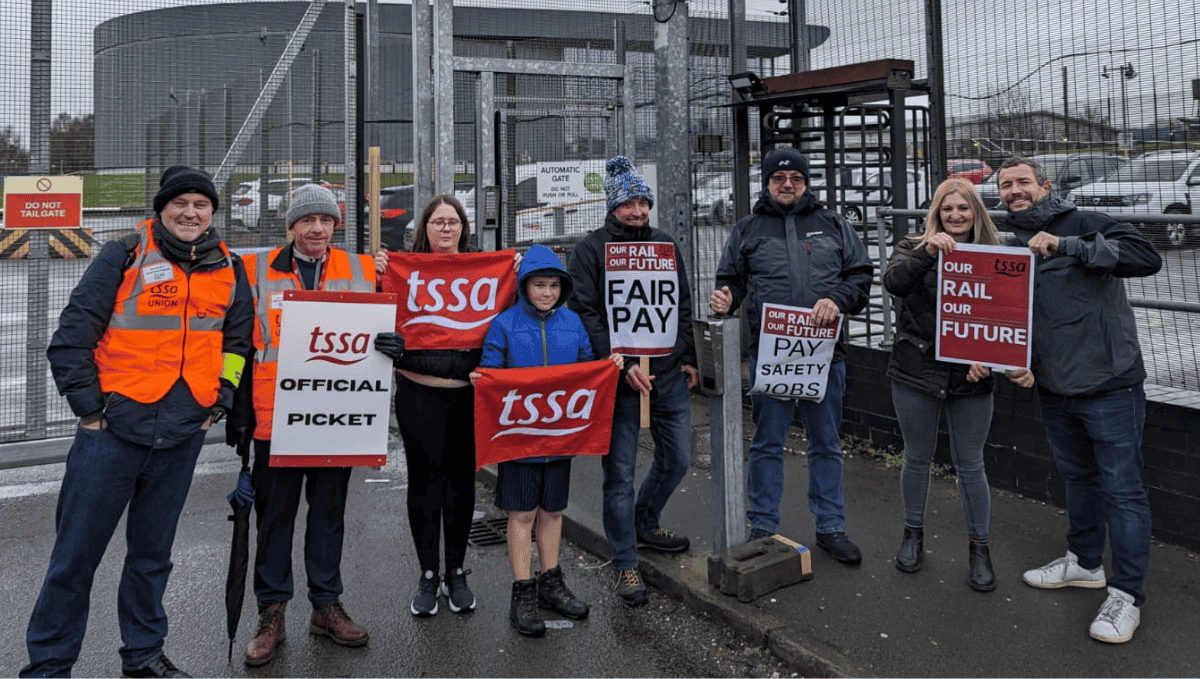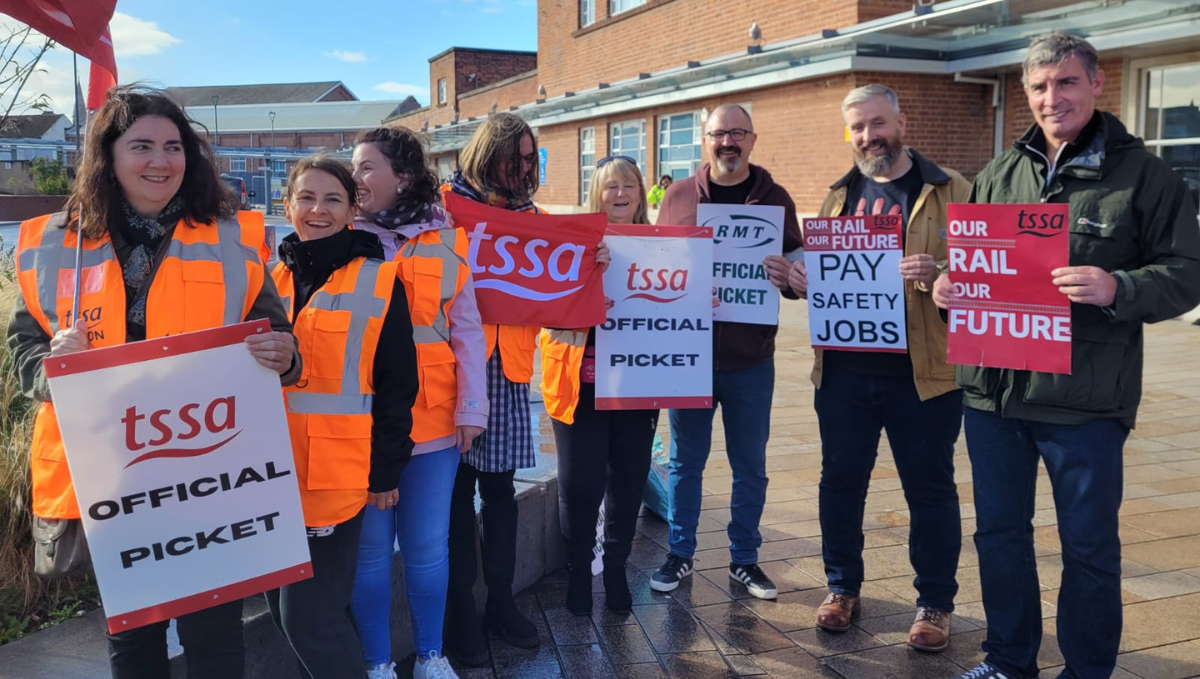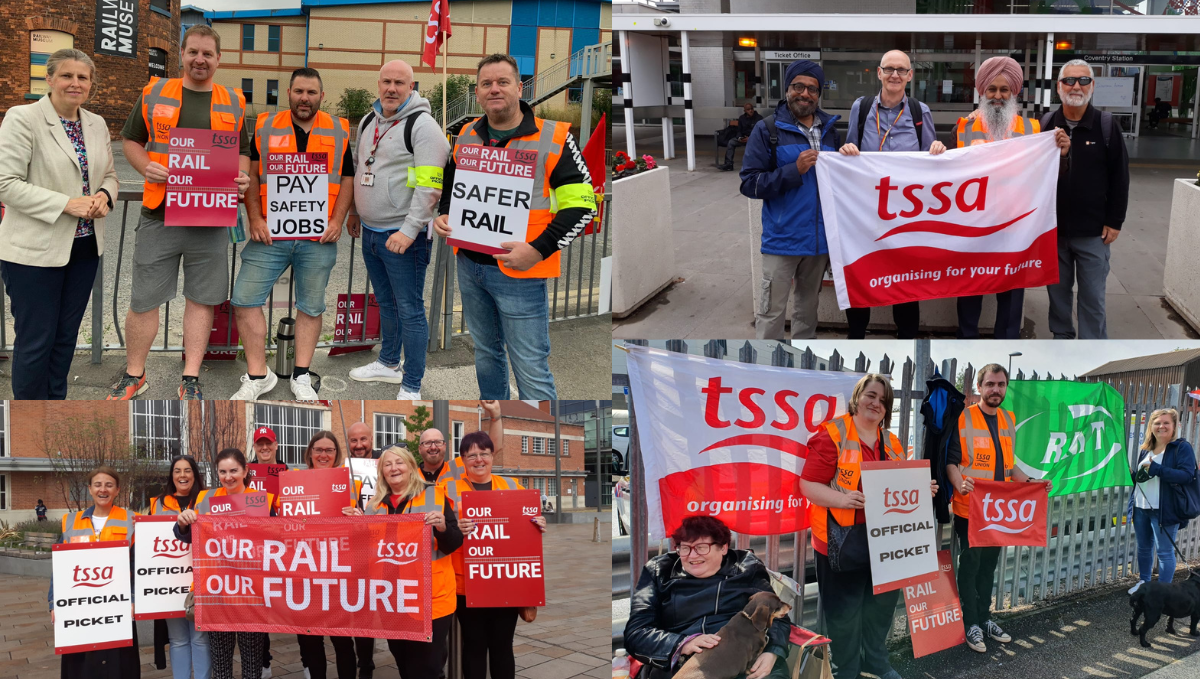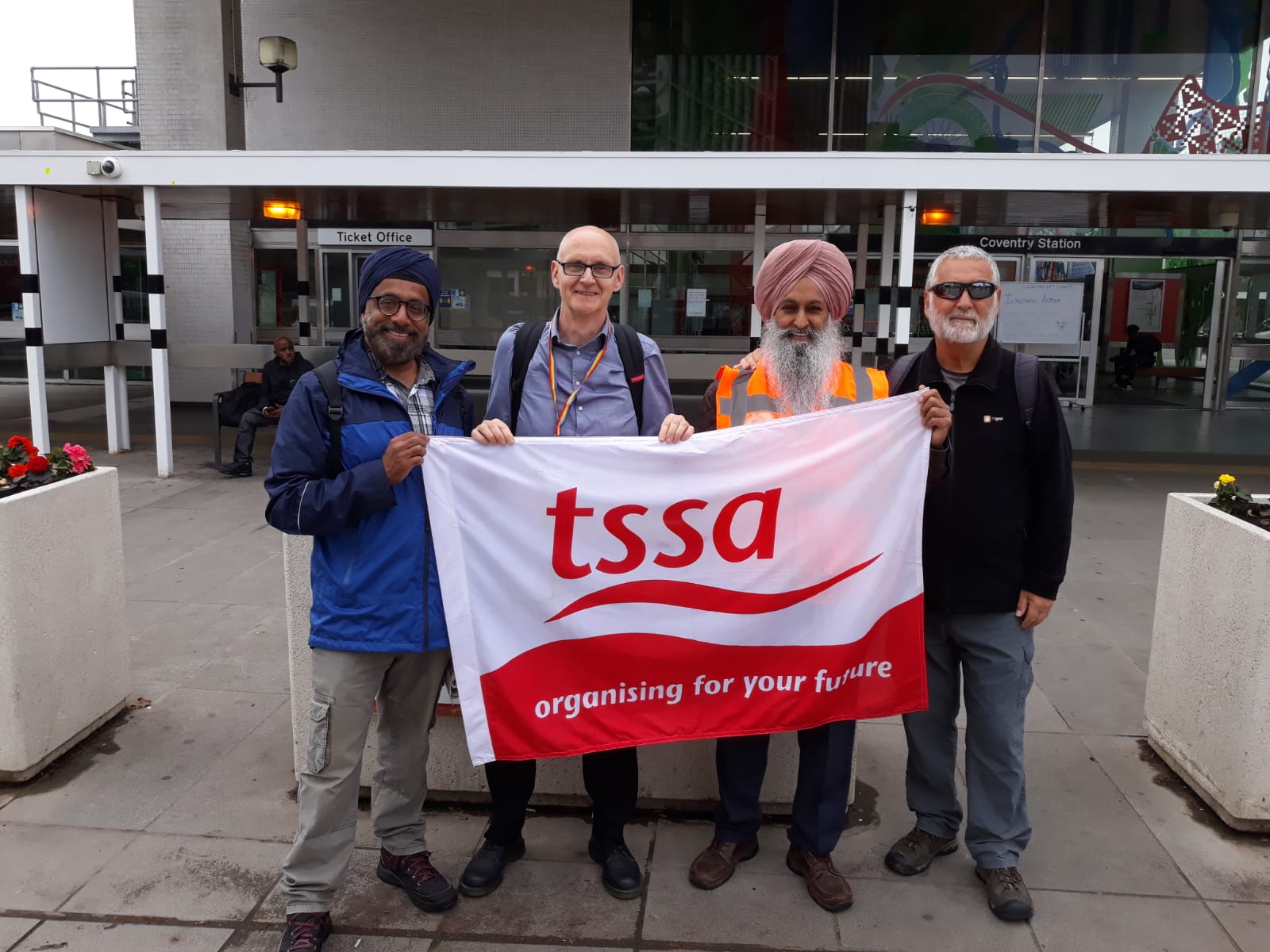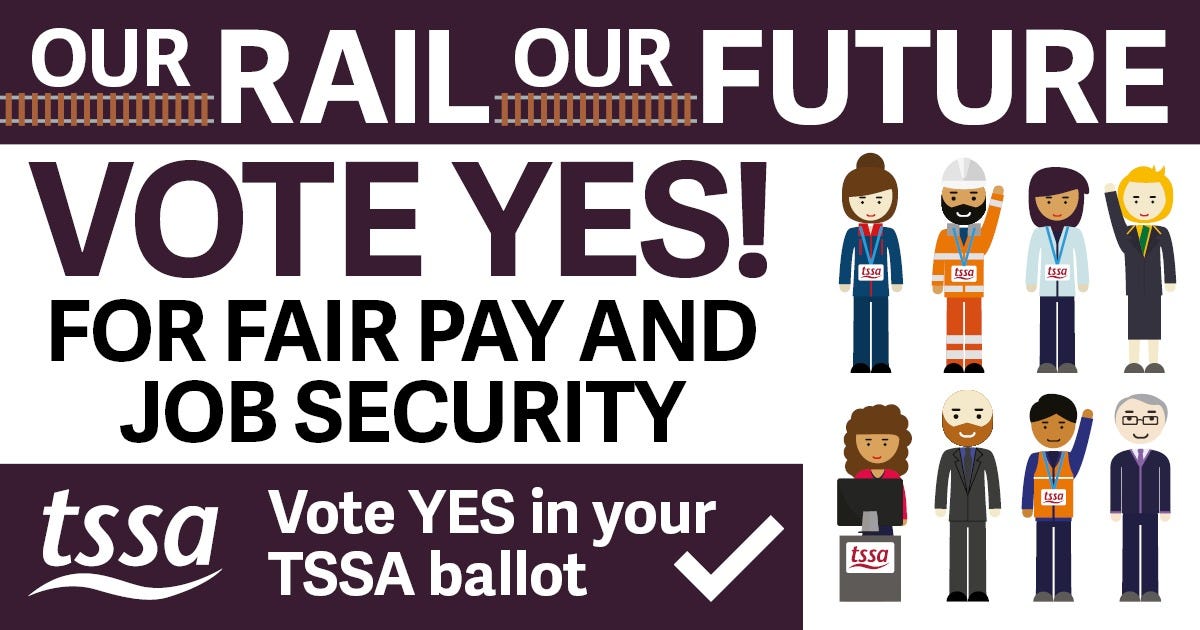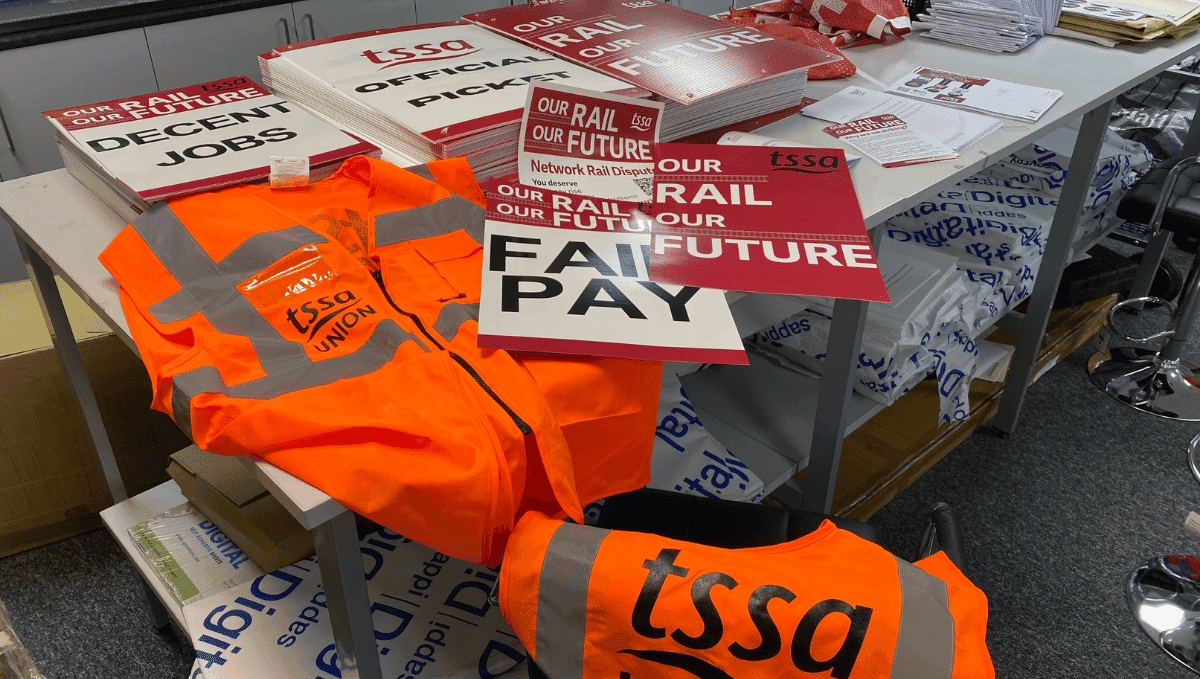Industrial action happens when trade union members are in a dispute with their employers that can't be solved through negotiations. A trade union can only call for industrial action if a majority of its members involved support it in a properly organised postal vote - called a 'ballot’. The members then use the ballot to vote in favour of ‘strike action’ and ‘action short of strike action’
When an employer and union cannot agree on an issue, this can amount to an ‘industrial dispute’. By clarifying with the company that we are in dispute, as they have not made the assurances we have asked for, this means we have the option to ballot members and access dispute resolution processes in our agreements with the company. It does not automatically mean our members are going to go out on strike! The decision to take action is always in the hands of members, when we ballot for industrial action.
A strike or industrial action is an action taken caused by a dispute between Trade Union members and employers. It is a refusal to work by employees until the dispute has been resolved.
Collective refusal by employees to work under the conditions required by employers. Strikes arise for a number of reasons, though principally in response to economic conditions (defined as an economic strike and meant to improve wages and benefits) or labour practices (intended to improve work conditions). Employees temporarily stop working because they're on strike or taking industrial action. Strikes or industrial action can happen for a variety of reasons and there are various rules to follow when holding legal strikes.
Members might be engaged in action short of a strike (ASOS) which can involve working strictly to contract, not covering for absent colleagues, or undertaking any voluntary activities
Action short of strike action – also known as ASOS could include.
Not covering for absent or unavailable colleagues
Working only your contracted hours/overtime bans
Only doing your own job, as per your Job Description
Not volunteering ideas or for additional tasks
Not working shifts, weekends or Bank Holidays
Not using NR’s online systems on a Friday (example)
Refusing to take part in meetings over 50 minutes (example)
Not sending or responding to emails before 9am or after 5pm (for example) go-slows
Nonattendance at training courses
No that isn’t correct. Even if you are working from home, you can still take part in the strike.
Yes - going on strike is simply the act of withdrawing your labour (work) until a dispute has been resolved as notified by the Union. Withdrawing your labour can be done regardless of being in a single place of work, working remotely or working from home.
Simply put, no. Your manager/employer does not need to be notified of your intention to go on strike.
No. The TSSA will keep you updated on strike action and the effected days through communicating in regular timely updates via email.
If a ballot does not return the required threshold then there will be no call for strike action.
You, the members will be invited to ballot for strike action and action short of strike. The ballot will be counted and then the results announced. The TSSA will inform Network Rail of our intention to strike (if applicable) and give advanced notice of the days that the strikes will take place.
Taking industrial action doesn’t usually mean that your employer will say you’ve broken your period of continuous employment with them. This begins when you start working for your employer and ends on the day your employer uses to calculate your length of service. However, if you take industrial action, your employer will reduce your length of service with them by the number of days you were on strike.
No, You can’t be dismissed for industrial action if:
- it’s called as a result of a properly organised ballot
- it’s about a trade dispute between workers and their employer (eg about your terms and conditions)
- a detailed notice about the industrial action (which is legally required) has been given to the employer at least 14 days before it begins
You can claim unfair dismissal at an employment tribunal if you’re dismissed for taking industrial action at any time within the 12 weeks after the action began.
If you take industrial action, your employer will reduce your length of service with them by the number of days you were on strike. This is important when working out your pension and things like statutory redundancy pay.
No. Strike action is a legal right of employees. The TSSA will give written notice of the stoppage to the company, so you don’t need to notify anyone. The employer is not allowed to ask whether a worker will participate or if you are a member of the union.
Yes. As a worker of a temporary agency, you don’t need to and should not do work that is covered by the strike. The strike is about your terms of employment too, such as minimum pay.
As a temporary agency worker, you can strike if:
- you work at a site that is covered by the strike
- you are called by the agency to work at strike locations during the strike
Work covered by the collective agreement is on strike at specific locations at specific times. Even if you are called into work, you can decline.
No. Salary is not paid for the period of a strike. However, pay and other employment-related entitlements from before the strike are paid as normal
The start of a strike does not interrupt annual holiday that has already begun. Employers must pay holiday pay as normal before a strike starts.
If a strike starts before your agreed annual holiday, and you’re on strike the holiday is rescheduled.
If a strike and pre-announced holiday start on the same day, the worker is on annual leave, since annual holiday starts at 00.00 and the strike only afterwards (that is when your shift would start).
A holiday cannot be ordered to start during a strike.
If you become sick before a strike starts, you must be paid sick pay. Send your medical certificates to your employer without delay and tell your employer when you recover, even if you join the strike at the end of the period of illness.
If you become sick after going on strike, legal practice is that the employer doesn’t have to pay you sick pay for strike days.
If the training takes place outside your workplace, you can take part in it.
Members are advised to be very cautious about what they post on social media about anything that may be critical towards the company or any of its employees. Facebook, Instagram etc. are all social media platforms and public forums. We want to avoid our members being targeted for disciplinary action.
All use of data will comply with GDPR
Yes, TSSA members who are apprentices were balloted and are covered by the vote. If your employer tells an apprentice member that they are not allowed to take industrial action, this is incorrect, and the apprentice should inform their local union Rep.
Yes. TSSA members who are new to Network Rail were balloted and are covered by the vote. If your employer tells a new employee that they are not allowed to take industrial action, this is incorrect, and the apprentice should inform their local union Rep.
Yes, we will organise picket lines at Network Rail buildings on any days that the strike action is called. We will communicate the locations of these to members. We will be producing information for passengers to explain why members are taking strike action.
In a scenario where your work commences before 00:01 on the day of strike action please complete that work as normal. However, if you are due to commence work between 00:01 till 23:59 on the day of strike action we are asking members not to turn up for that work nor return to work until their next planned shift after 23:59 on day of strike action.
